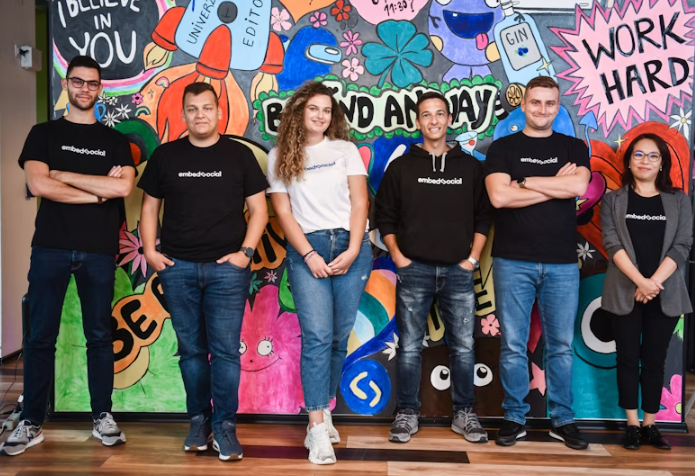Artificial Intelligence Startups Disrupting the Tech Landscape

a-group-of-people-standing-in-front-of-a-colorful-wall-EmbedSocial-https://unsplash.com/
Artificial Intelligence Startups Disrupting the Tech Landscape
In a world where innovation moves faster than regulation, a new breed of disruptors is rewriting the rules—AI startups. From hidden research labs to buzzing co-working spaces, these agile teams are building tools that challenge industry titans, redefine workflows, and alter the very fabric of how businesses think and operate.
The Rise of the Small Yet Smart
Not long ago, artificial intelligence was a privilege reserved for tech giants like Google, Amazon, and Microsoft. But the landscape has shifted dramatically. Thanks to open-source models, cloud-based GPUs, and democratized machine learning frameworks, startups now have access to the same computational power once locked behind billion-dollar budgets.
In San Francisco, a three-person team built an AI system that detects early signs of Alzheimer’s using voice analysis. In Singapore, a startup created predictive software that helps farmers reduce waste by 40%. The common thread? Speed and purpose. These small companies don’t compete on size—they compete on agility and vision.
How Startups Are Redefining Industries
From healthcare to finance, AI startups are carving new paths. Companies like Runway and Synthesia are revolutionizing content creation, allowing anyone to generate videos without cameras. Meanwhile, fintech startups are using AI to detect fraud before it happens, protecting billions of digital transactions daily.
The disruption isn’t just technological—it’s cultural. AI startups are introducing new philosophies of work where creativity meets computation. Their products don’t just automate; they amplify human intelligence, transforming industries from reactive to predictive.
The Power of Data and Adaptability
Every startup lives or dies by data. Unlike larger corporations bogged down by bureaucracy, startups can adapt rapidly—tuning models weekly, pivoting based on user behavior, and launching updates overnight. This adaptability allows them to innovate faster and respond to real-world needs almost in real time.
And as venture capital continues to flood the AI sector, the competition intensifies. The next unicorn may not be a social media app or a delivery service—it might be an AI system capable of generating legal contracts, diagnosing diseases, or composing symphonies on demand.
Key Points:
- AI startups thrive by combining speed, creativity, and accessible technology.
- Industries like healthcare, media, and finance are being reshaped by small innovators.
- Open-source tools and democratized data empower global AI entrepreneurship.
- The next wave of disruption will come from intelligent systems, not just software.



















